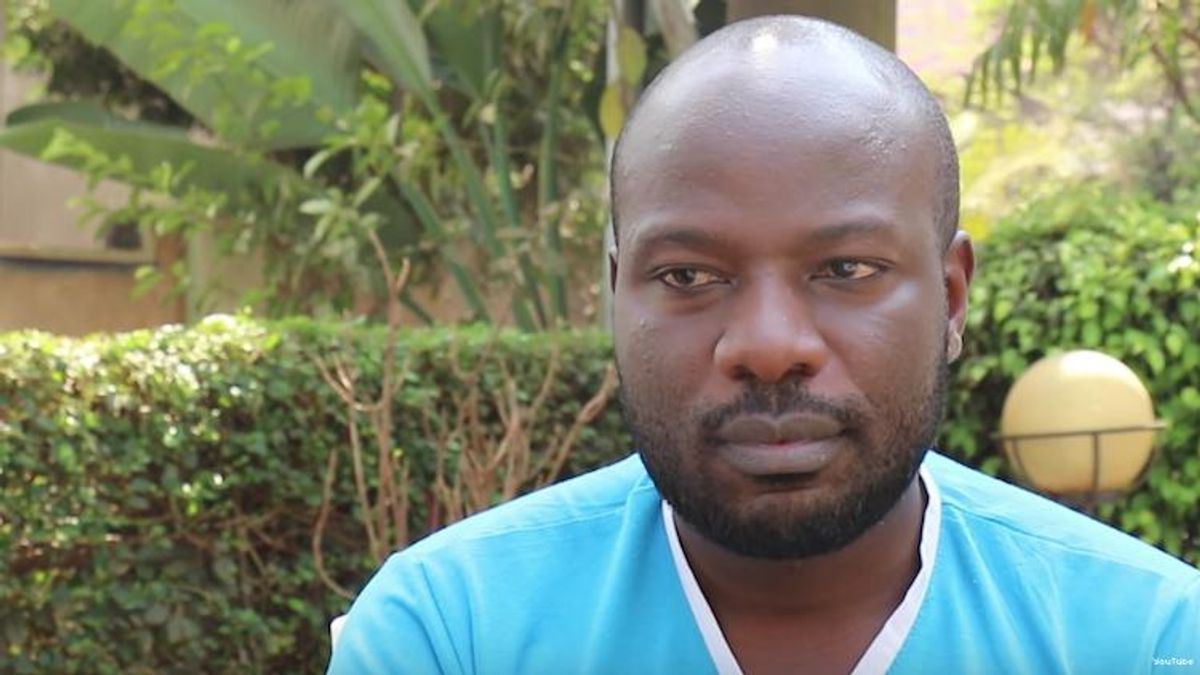Music
What Happened After A Rwandan Gospel Singer Came Out As Gay

Albert Nabonibo has been ostracized from friends, family, and strangers since coming out.
September 17 2019 11:03 AM EST
May 31 2023 4:52 PM EST
By continuing to use our site, you agree to our Private Policy and Terms of Use.

Albert Nabonibo has been ostracized from friends, family, and strangers since coming out.
Last month, Rwandan Gospel singer Albert Nabonibo came out as gay in an interview with a Christian YouTube channel, a public admission that is uncommon in the central African nation. Since then, he says he's faced "horrible" reactions from friends, family, and strangers.
"But there is no going back, because I have to live my real life," Nabonibo said in a Monday interview with the Associated Press. "It's so sad to see people you know abusing you."
Nabonibo, 35, also works as an accountant. He told the AP that since coming out, he's become an outcast of sorts at his workplace. He is worried he could lose his job, not because being gay is illegal or outlawed but because being openly LGBTQ+ is extremely taboo.
Rwanda's penal code does not explicitly restrict sex between people of the same gender, but same-sex marriage is banned. This means that many LGBTQ+ people live their lives in secret to avoid societal scorn and judgment.
"If you are gay, members of your community ostracize you," William Ntwali, a Rwandan human rights activist, told the AP. "People think you are not normal, and they look at it as an abomination."
According to Human Rights Watch, such stigma is often passed down from colonial-era laws in Africa.
Some of Nabonibo friends told theAP that they were embarrassed. They wouldn't even allow their names to be printed. "This is crazy. I don't understand why he thinks this is normal," said one friend.
Another friend who also attends the same church as Nabonibo, said he was in "agony" since the rest of his family knows he used to hang out with the gospel singer. He's blocked Nabonibo from all communication, saying he wants to "keep safe."
That said, the gospel genre, and by extension the Christian church, is said to be home to many LGBTQ+ people -- who live in glass closets as a result of the conservative, allegedly Bible-prescribed teachings. Such beliefs lead many to espouse being "ex-gay" after prayer, text studying, and, sometimes, life-threatening and traumatic "treatments."
Notable examples include gospel singer Donnie McClurkin who, after sharing in his 2001 memoir Eternal Victim/Eternal Victor that he was sexually assautled by male church members that made him gay, identifies as "ex-gay." Singer Tonex, in 2010, outed himself in an interview and was immediately disavowed by the gospel community. He rebranded himself as a R&B and pop artist under the name B. Slade.
Nabonibo said he no longer wanted to "live in denial."
"There is a long list of [gays] in your midst and they include pastors or churchgoers," he said. "This pretense encouraged me to speak out."
Some support has come Nabonibo's way, however.
"All Rwandans are born and remain equal in rights and freedoms," tweeted Foreign Minister Olivier Nduhungirehe. "Discrimination of any kind or its propaganda... are prohibited and punishable by law." He was quoting article 16 of the country's Constitution.
He added, "Please continue singing and praising the Lord. This nation will protect you."
RELATED | This Director Sued The Kenyan Government To Screen Her LGBTQ+ Film